China’s woes are growing in Country Garden
First, there was Evergrande; now another Chinese property developer Country Garden has fallen behind on its bond payments, sending fresh fears through jittery global markets.
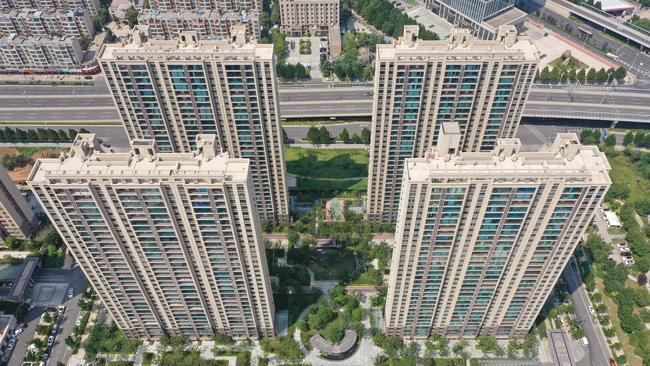
First, two years ago, there was Evergrande; now another Chinese property developer that is virtually unknown outside Asia has fallen behind on its bond payments, sending fresh fears through jittery global markets.
This time the builder on the brink is Country Garden, which last year sold almost 700,000 flats and houses, more than any other Chinese developer. However, last week it failed to pay the $US22.5 million coupon owed to its international bondholders, reigniting the cashflow worries that have dogged China’s property industry in recent years.
Those fears deepened on Monday when Country Garden moved to suspend trading of its 11 onshore bonds. The news sent its shares, which are listed in Hong Kong, tumbling by 18 per cent to their lowest price on record.
The concerns about China and its property industry seeped into other parts of the financial market, affecting the prices of commodities, currencies and even mining stocks listed in London.
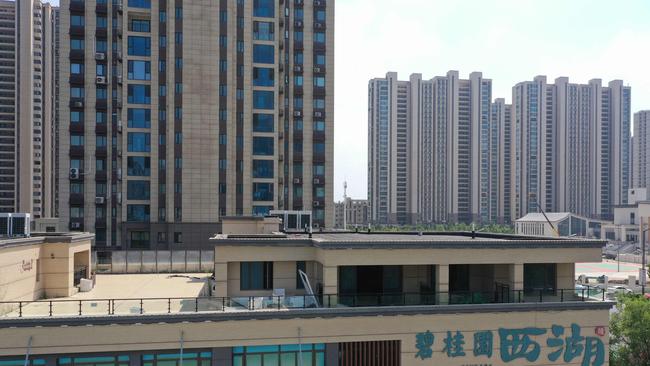
China’s property industry makes up between a quarter and a third of the country’s economy, which is the second largest in the world behind that of the United States. If the property industry goes belly-up, economists think it could be tough for the Chinese economy not to follow suit.
Country Garden was set up in 1992 by Yeung Kwok Keung in Beijiao, a town on the outskirts of Foshan, the 14th largest city in China. The company, like a number of others, cashed in on the property boom that has gripped China since the Nineties, when a series of reforms ratcheted up the nation’s drive to urbanisation. In 2018 it was worth $US50 billion; now it is valued at less than $US3 billion.
Yeung, 68, led the business until March, when he stepped down for “age reasons”. He handed over control to his daughter, Yang Huiyan, 42, whom he brought into the company in 2005 as his personal assistant. Upon her arrival, Yeung transferred a controlling stake in the business to his daughter. When Country Garden made its debut on the Hong Kong stock market in April 2007, she became China’s richest woman at the age of 25.
At its peak two years ago, her personal fortune was estimated at more than dollars 34 billion, according to the Bloomberg Billionaires Index. However, with the tribulations facing Chinese developers since then, her net worth is now estimated to be about $US5 billion. No other billionaire has seen such a drop in their net worth over that time frame, Bloomberg’s index shows.
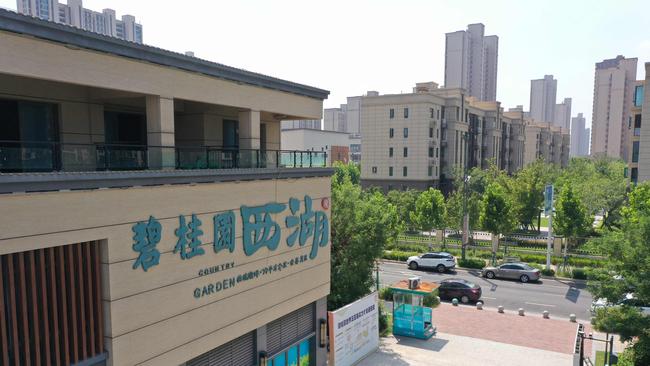
Yang is not alone. Nearly every property tycoon in China has had their wealth eroded since 2020, when Beijing began cracking down on spiralling house prices and what it saw as excessive borrowing in the industry.
The rule changes made it more difficult for developers to refinance the large debts they had amassed as they doubled down on the country’s property boom.
Further compounding their liquidity problems, sales have slumped as the economy has stumbled its way out of the pandemic. Those buyers who are left increasingly are going to state-backed developers that they know will still be around in a year’s time.
Country Garden said at the end of last week that it would make a loss of up to dollars 7.6 billion in the first half of this year after suffering a 61 per cent decrease in sales between January and June. It has promised to “spare no effort in self-rescue”.
Analysts at Morgan Stanley said on Monday that its “worsening liquidity may lead to higher chance of default in the near term” as they downgraded their rating of the shares to “underweight”. Moody’s, one of the three big rating agencies, cut its assessment of the company last week, citing “heightened liquidity and refinancing risks”. Some of Country Garden’s bonds that are due to mature next month are trading at a quarter of their par value, indicating that investors do not think there’s much chance of it paying up.
Short of cash, many of China’s big developers have struggled with keeping up with the repayments due on their loans. Evergrande, which was the world’s most indebted builder with about dollars 300 billion of debt, was the most high-profile casualty in 2021. There was a worry that its collapse would spill out of the Chinese property market and into other parts of the global economy.
Although its problems were blamed for a stock market sell-off in the autumn of 2021, the fears about contagion never materialised. Despite that, there remain worries that Country Garden’s troubles will be felt far and wide, at least indirectly.
A slew of recent disappointing figures out of China has hardened concerns that its economy is not emerging from the pandemic at the pace many had expected. Renewed worries about the health of the property industry have added to broader concerns.
Oxford Economics, the forecasting body, had thought China’s gross domestic product would rise by 5.1 per cent and by 4.6 per cent in 2023 and 2024, respectively. Today it thinks another shock to the country’s property sector would prompt it to reduce those estimates by 0.4 percentage points for this year and by 0.7 percentage points for next year.
This was reflected in the financial markets on Monday. Given China’s status as the world’s biggest consumer of raw materials, metals prices retreated. The price of copper fell to its lowest in six weeks, while those of tin and zinc also pulled back, as did oil.
That knocked the value of some of London’s big-name miners: shares in Anglo American and Glencore both fell by more than 2.5 per cent.
Indeed, stock markets were subdued yesterday (Monday), with traders noting cautiousness among investors given the events in China. The FTSE 100 in London closed down by 0.2 per cent, while in Asia Hong Kong’s Hang Seng fell by 1.6 per cent and the Nikkei 225 in Tokyo lost 1.3 per cent.
Against a basket of leading currencies, the US dollar, seen by investors as a “safe haven” in times of uncertainty, rose to its dearest in more than a month.
JP Morgan said Country Garden could set off a “vicious cycle” in China’s property sector.
However, Thomas Mathews, from Capital Economics, did not expect it to spread beyond that, not directly at least. He remained certain that China’s “property and financial system aren’t about to implode”, partly because of the “range of tools available” to Beijing. When Evergrande was struggling, the government was determined to cool a property sector it felt had overheated. The expectation now is that it will step in to ease tensions in the sector.
“[The Chinese government can] stem the bleeding should they deem it necessary,” Mathews said.
The Times

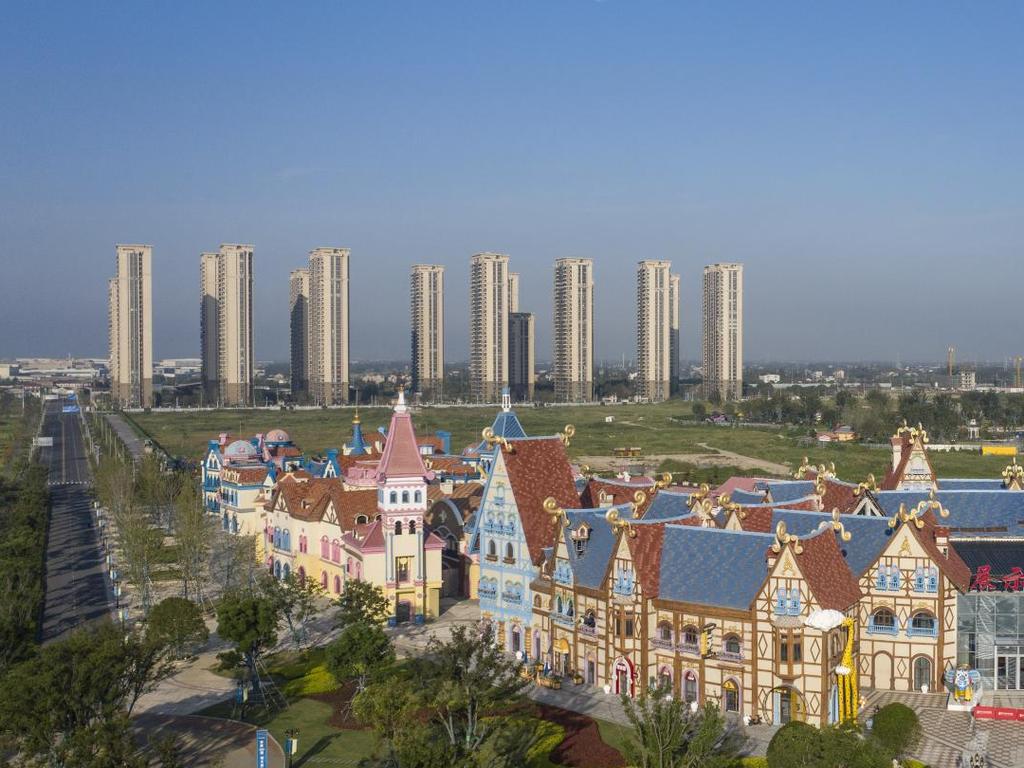
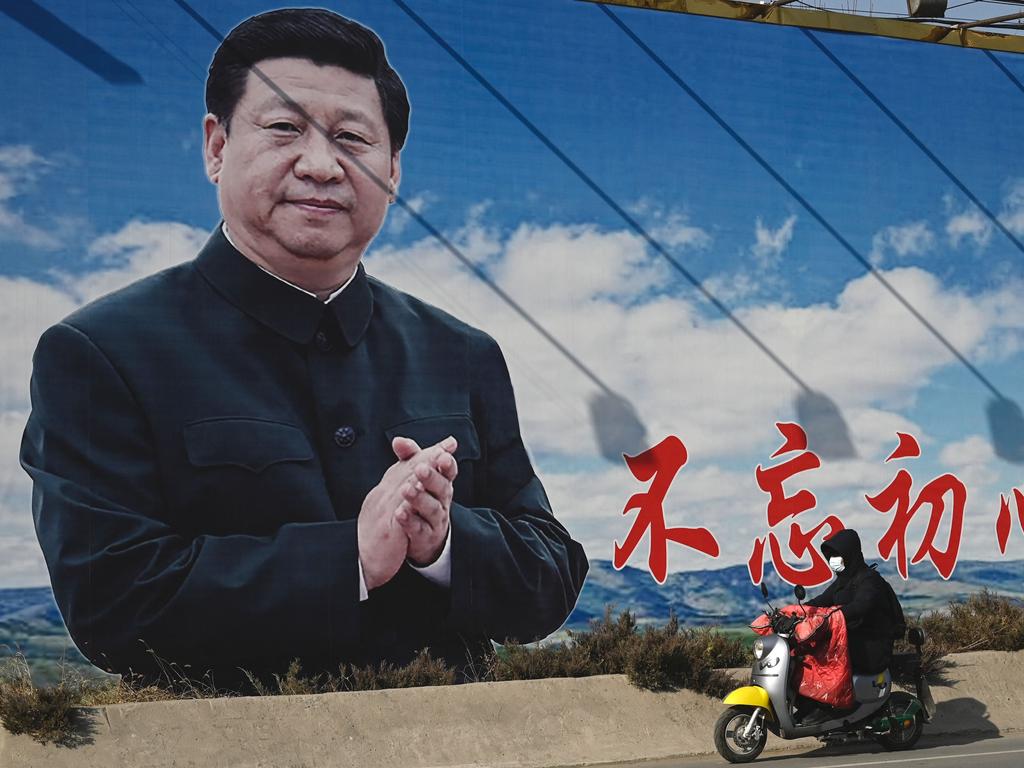



To join the conversation, please log in. Don't have an account? Register
Join the conversation, you are commenting as Logout